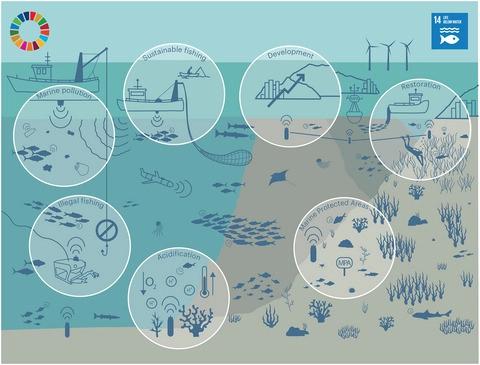当前位置:
X-MOL 学术
›
Glob. Change Biol.
›
论文详情
Our official English website, www.x-mol.net, welcomes your feedback! (Note: you will need to create a separate account there.)
Toward a decade of ocean science for sustainable development through acoustic animal tracking
Global Change Biology ( IF 11.6 ) Pub Date : 2022-08-05 , DOI: 10.1111/gcb.16343 Josep Alós 1 , Kim Aarestrup 2 , David Abecasis 3 , Pedro Afonso 4 , Alexandre Alonso-Fernandez 5 , Eneko Aspillaga 1 , Margarida Barcelo-Serra 1 , Jonathan Bolland 6 , Miguel Cabanellas-Reboredo 7 , Robert Lennox 8, 9 , Ross McGill 10 , Aytaç Özgül 11 , Jan Reubens 12 , David Villegas-Ríos 1, 5
Global Change Biology ( IF 11.6 ) Pub Date : 2022-08-05 , DOI: 10.1111/gcb.16343 Josep Alós 1 , Kim Aarestrup 2 , David Abecasis 3 , Pedro Afonso 4 , Alexandre Alonso-Fernandez 5 , Eneko Aspillaga 1 , Margarida Barcelo-Serra 1 , Jonathan Bolland 6 , Miguel Cabanellas-Reboredo 7 , Robert Lennox 8, 9 , Ross McGill 10 , Aytaç Özgül 11 , Jan Reubens 12 , David Villegas-Ríos 1, 5
Affiliation

|
The ocean is a key component of the Earth's dynamics, providing a great variety of ecosystem services to humans. Yet, human activities are globally changing its structure and major components, including marine biodiversity. In this context, the United Nations has proclaimed a Decade of Ocean Science for Sustainable Development to tackle the scientific challenges necessary for a sustainable use of the ocean by means of the Sustainable Development Goal 14 (SDG14). Here, we review how Acoustic animal Tracking, a widely distributed methodology of tracking marine biodiversity with electronic devices, can provide a roadmap for implementing the major Actions to achieve the SDG14. We show that acoustic tracking can be used to reduce and monitor the effects of marine pollution including noise, light, and plastic pollution. Acoustic tracking can be effectively used to monitor the responses of marine biodiversity to human-made infrastructures and habitat restoration, as well as to determine the effects of hypoxia, ocean warming, and acidification. Acoustic tracking has been historically used to inform fisheries management, the design of marine protected areas, and the detection of essential habitats, rendering this technique particularly attractive to achieve the sustainable fishing and spatial protection target goals of the SDG14. Finally, acoustic tracking can contribute to end illegal, unreported, and unregulated fishing by providing tools to monitor marine biodiversity against poachers and promote the development of Small Islands Developing States and developing countries. To fully benefit from acoustic tracking supporting the SDG14 Targets, trans-boundary collaborative efforts through tracking networks are required to promote ocean information sharing and ocean literacy. We therefore propose acoustic tracking and tracking networks as relevant contributors to tackle the scientific challenges that are necessary for a sustainable use of the ocean promoted by the United Nations.
更新日期:2022-08-05


























 京公网安备 11010802027423号
京公网安备 11010802027423号